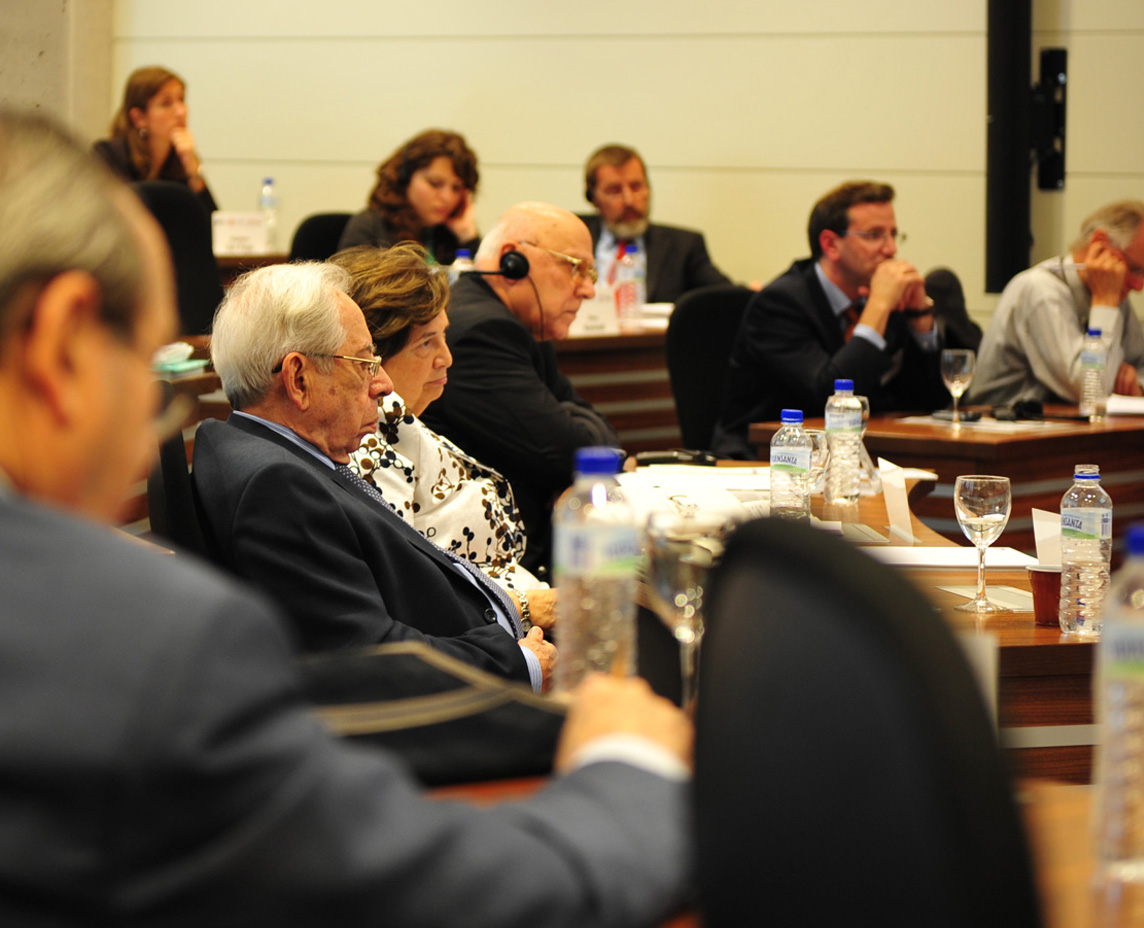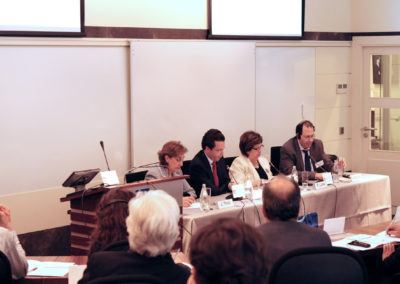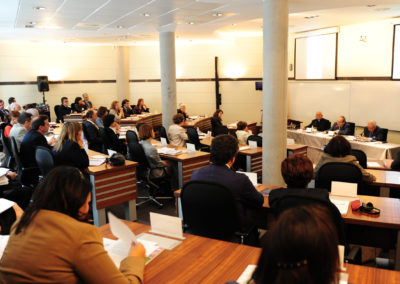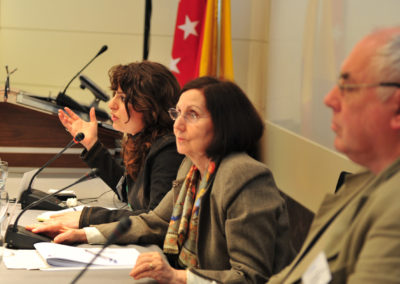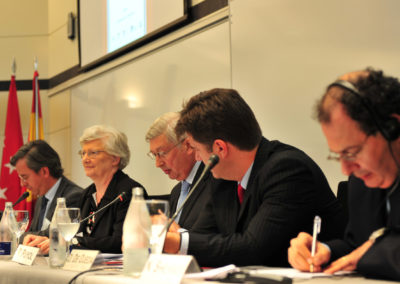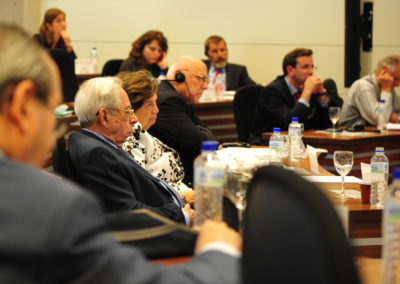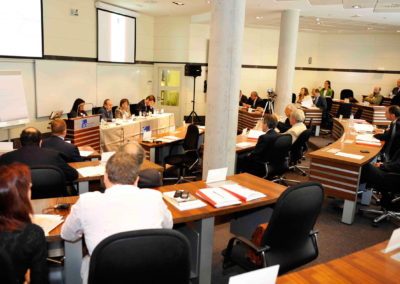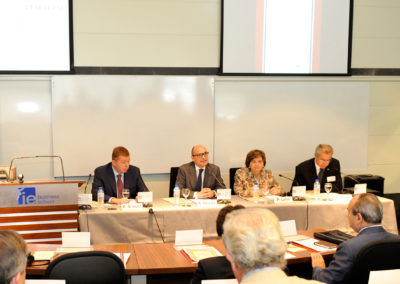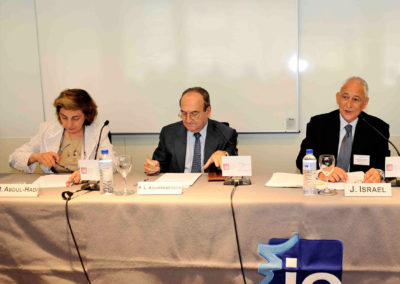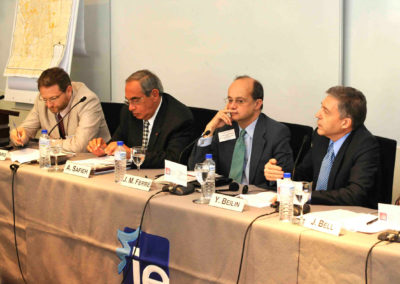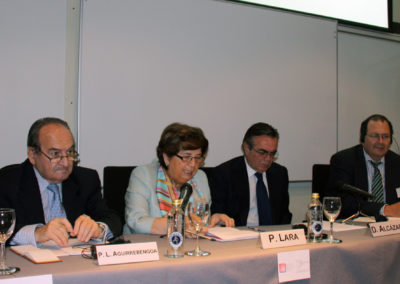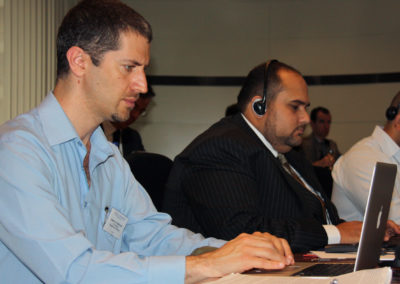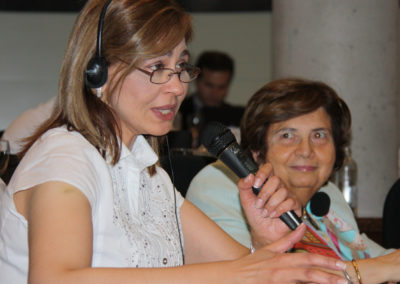The aim of this program, which began in 2009 and ended in 2012, has been to raise awareness of the situation of ethnic and religious minorities in the Middle East, and has sought to raise awareness among the people of Madrid and the national and international specialized and non-specialized public opinion on the situation of ethnic and religious minorities in the Middle East and also the promotion of human rights and the defense of individual freedoms.
To this end, research and reflection on this subject has been carried out with the collaboration of experts from the North and South of the Mediterranean, through the organization of various activities (conferences, meetings, international seminars, publications, interviews with the press, etc.).
Among the activities carried out, it is worth mentioning the organization of three seminars:“Middle East, Fragmented Societies, and What Future?” June 9 and 10, 2009; “Israel, Palestine, Jerusalem and the Holy Places. Past, Present and Future “, June 1, 2010; and “Transition in the New Arab World: A Challenge for East and West”, June 6, 2011.
Following the seminars, a publication has been produced which has collected the main contributions and outlined conclusions and possible lines of action on how best to address the problem. This publication has been sent to experts and specialists attending the seminar and to all those who make up the CEMOFPSC network of experts, almost 200 people. Likewise, it has been posted on the CEMOFPSC website, for a greater diffusion and awareness of the public opinion of Madrid. With the same objective of reaching a wide audience, an important communication work has been carried out with a wide media impact.
As parallel activities, in March 2009, a meeting was held with young professionals, in which Fray Artemio Vítores (Vice-custodian of the Holy Places in Jerusalem) was present as rapporteur to raise awareness of the Christian minorities in the Holy Land. And with Hala Mustafa, Editor-in-Chief of Democracy Review of Egypt, on the night of June 6, 2011 and February 24, 2012, to reflect on the current situation of the Arab world after the riots that emerged in the so-called “Arab Spring”.
-
Middle East, Fragmented Societies, and What Future?
-
Middle East, Fragmented Societies, and What Future?
-
Middle East, Fragmented Societies, and What Future?
-
Middle East, Fragmented Societies, and What Future?
-
Middle East, Fragmented Societies, and What Future?
-
Israel, Palestine, Jerusalem and the Holy Places. Past, Present and Future
-
Israel, Palestine, Jerusalem and the Holy Places. Past, Present and Future
-
Israel, Palestine, Jerusalem and the Holy Places. Past, Present and Future
-
Israel, Palestine, Jerusalem and the Holy Places. Past, Present and Future
-
Transition in the New Arab World: A Challenge for East and West
-
Transition in the New Arab World: A Challenge for East and West
-
Transition in the New Arab World: A Challenge for East and West





